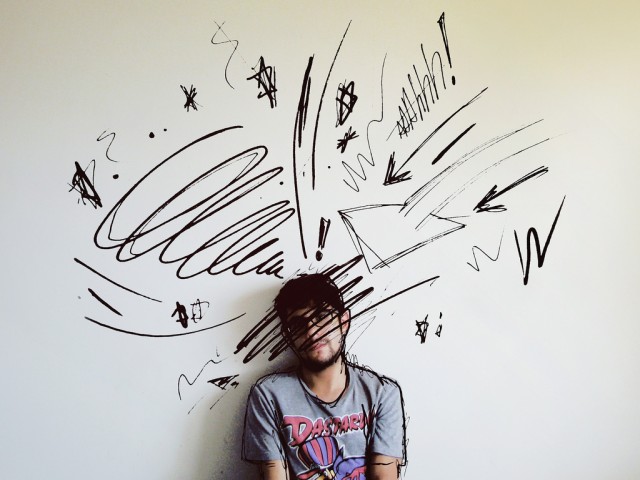Being Messy! The Key to Creativity!
Good news for the slapdash and slipshod – your messiness might drive your mates barmy, but it’s actually a sign of high intelligence. Studies in brain chaos (probably not the technical term) have shown that those with a disorganised mind score higher on IQ tests.
As a result, there is an increasingly vocal movement promoting messiness as the key to workplace success. As well as indicating intelligence, they argue, clutter is a conduit to greater creativity.
So stack up the dirty coffee cups and strike “organised” and “detail-orientated” from your CV – it’s time to make one hell of a mess.

The Benefits of Physical Mess
“If a cluttered desk is a sign of a cluttered mind, then what are we to think of an empty desk?” So quipped Albert Einstein, walking evidence of the intelligent-messiness hypothesis. His remark has since been validated by science – clinical, barren spaces devoid of distractions are “toxic” for our productivity and morale.
Moreover, neatness is a time-waster. Not only does filing every document or email in an alphabetised folder take more time than leaving them on the desk or in the inbox, it actually takes longer to retrieve the item when it is next needed. It sounds counterintuitive, but happens because frequently used documents naturally rise to the top of a chaotic desk pile, whereas filed documents are surrounded by bumf.
But the benefits of physical mess go beyond time-saving and an aversion to emptiness – the mess itself increases creativity. According to Tim Harford, author of the aptly-titled Messy, this is because surrounding ourselves with disarray heightens our alertness, and higher rates of alertness mean higher levels of creativity, innovation, resilience and problem solving.
Research has proven him right. Empowering stroppy teenagers everywhere, messy rooms are strongly correlated with higher creativity. And what is true of bedrooms is true of desks, workspaces and offices. Not only that, but creativity makes you a better person.
The Benefits of Mental Mess

Be honest, how many other things have you thought about while reading this article? Several, if you’re like the average human, who spends eight minutes out of every hour daydreaming. For the most absent-minded folk, that proportion can rise to a huge 40% of their day. Luckily for them, it’s not time wasted – when people daydream, it activates the same regions of the brain as are used for solving puzzles. Contemplation, in other words, equals creativity.
In general, the trick to boosting creativity seems to be combining as many thoughts and stimuli as possible. Common wisdom may be to focus on one task at a time, but in reality multitasking or flitting between projects encourages the brain to make the sort of out-of-the-box connections which generate new ideas and breed new insights.
Part of the reason is our own innate laziness. When our brain receives familiar information from an activity that is convention or routine, it expends very little effort examining it, figuring it already knows how to process it. But when we are faced with new or unexpected information it forces our brain to pay attention. We become more perceptive, and mentally record more of the experience. It’s all this extra brain work that starts up the idea factory we call creativity.
The Benefits of Social Mess
If bouncing lots of different ideas around one brain can improve productivity, imagine the effect of bouncing lots of different ideas around lots of different brains!
Teamwork works best when the group is diverse and changes frequently. Groups containing people who are wildly different to each other are better problem solvers than groups of people who are all high achievers. If you want to come up with innovative ideas, collaborate with as many different people as possible. Different insight and perspectives are the key to discovering new ways of thinking about things.
The Benefits of Metaphysical Mess
Chilling stuff, but Mitch Alborn has a point. As a race, humans are obsessed with plans and structures designed to divvy up time in the most effective parcels possible. Unfortunately, meticulously organising your day is a recipe only for demotivation and lower attainment.
Instead, creative types should try following the advice of entrepreneur Marc Andreessen, and refuse to keep a schedule at all. From extended self-experimentation, Marc reckons that working on what you want when you want is the key to sky-high productivity and greater happiness. (Another fan of this technique is Arnold Schwarzenegger, who extended his Hollywood-diva refusal to make appointments to his tenure as Governor of California).
But Who Cleans Up?
For every newly validated slob, there is a neat-freak quivering in his boots at the mere idea of all this deliberate disorganisation. Unlimited unkempt mess, surely, will be annoying, confusing, and plain overwhelming. Well, yes – and that’s kind of the point.
Messiness works because it is a form of self-sabotage that makes things much more difficult for our brain than it needs to be. But this is precisely what forces it to come up with unique, innovative solutions which it otherwise would not bother to create.
Hey, nothing worth having comes easy.
Ref: http://justcreative.com/2017/02/26/being-messy-the-key-to-creativity/
